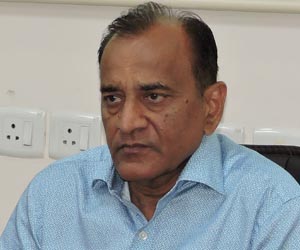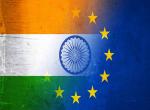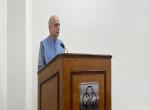The India-Malaysia relationship has come a long way since 2019, when Malaysia’s the then Prime Minister Mahathir Mohammad ruined the ties with his uncalled-for remark on Kashmir—he said that ‘New Delhi had invaded and occupied Kashmir’. He had also criticised the Citizenship Amendment Act. With Mohammad no longer in office, the partnership between the two countries has steadily returned to normalcy, and the recent official visit of Malaysian Prime Minister Dato’ Seri Anwar Ibrahim has helped cement the relationship.
As a result of Mohammad’s misplaced comments, New Delhi had moved swiftly to cut down on the import of Malaysian palm oil. An Indian vegetable oil trade outfit asked its more than 800 members to stop the purchase of palm oil from Malaysia. In 2019, India was the single biggest importer of palm oil from Malaysia; it had purchased upward of four million tonnes. Mahathir Mohammad later accepted that his remarks had harmed bilateral relations but sought to water them down by adding that he believed that India, unlike China, was more amenable to criticism.
But the damage had been done. Informed observers had been shocked by his undiplomatic comments and were left to wonder what had promoted him to make them. After all, during Prime Minister Narendra Modi’s visit to Malaysia in 2015, the bilateral had been elevated to a strategic partnership; five years earlier a comprehensive framework had been adopted by the two countries to promote a multifaceted relationship that included defence, economic and parliamentary exchanges. The two countries now have a comprehensive strategic partnership.
With Mohammad’s comments consigned to the dustbins of history, where they rightfully belong, India and Malaysia are looking to further their partnership. Prime Minister Dato' Seri Anwar bin Ibrahim’s recent visit to India reinforced the shared commitment of the two countries. The official portal of Malaysia’s foreign affairs ministry was upbeat about Ibrahim’s trip; it was his first visit to India since taking office in November 2022. It spoke about the growing economic partnership—in 2023, the bilateral trade was more than $16 billion, and India imported palm oil and palm oil-used products worth $2.44 billion from Malaysia that same year. India exported petroleum products ($1.44 billion), and agricultural produce and meat ($1.27 billion) to Malaysia during that period. Overall, in 2023, Malaysia was India’s third-biggest trading partner among ASEAN member countries and the largest trading partner among the eight South Asian nations.
India has given due weightage to Malaysia which goes beyond purely bilateral interests and encompasses geo-strategic regional interests. Malaysia has had much to contribute in India’s trade with ASEAN (Association of Southeast Asian Nations). Besides, it fits in well with New Delhi’s Act East Policy initiatives and taking forward maritime connectivity in South China Sea. Malaysia and India also share similar thoughts on ASEAN’s Indo-Pacific Perspective (AOIP) and the Indo-Pacific Initiative (IPOI).
Over the years India and Malaysia have established several mechanisms to promote bilateral relationship in various areas. These initiatives include the setting up of the India-Malaysia Parliamentary Friendship Group, the Ministry of Foreign Affairs Consultative Framework, the Joint Commission Meetings, a Defence Cooperation Memorandum of Understanding, the Joint Taskforce on Combating Terrorism and Transnational Crimes, etc. India’s emergence as the world’s fifth-largest economy, and its aim to reach the five trillion dollar trillion mark as well as become the world’s third biggest economy, coupled with its substantial population, technological advancements and a diverse industrial landscape, has attracted Kuala Lumpur towards the Indian market.
There is, however, one contentious issue that has not been resolved. Preacher Zakir Naik, who is wanted in India on charges of money laundering, hate speech and terrorism, resides comfortably in Malaysia despite repeated calls from New Delhi for his extradition. Zakir Naik fled India in 2016 and moved to Malaysia where he reportedly secured permanent residency. In 2022, the Indian government declared his organisation, the Islamic Research Foundation, as unlawful. The Malaysian government took a half-step to appease India when in 2019 it banned him from delivering public speeches, but that was clearly not enough. Incidentally, Zakir Naik was in Oman before settling down in Malaysia, and the Indian authorities had then taken up the matter with the Oman authorities as well.
The Mahathir Mohammad government was compelled to take note of Zakir Naik’s activities after he made controversial statements about Malaysia’s ethnic minorities—those of Hindu and Chinese backgrounds. A senior government minister had even said that the Malaysian Cabinet had agreed that Zakir Naik should leave the country. The Malaysian police informed that the preacher was under investigation because more than a hundred complaints had been received against him. It added that Zakir Naik was facing a probe for ‘intentional insult with intent to provoke a break of peace’. But nothing more was done by the Malaysian authorities and Zakir Naik remained secure in the country. Will the Ibrahim government take fresh look into the matter? Only time will tell.
The India-Malaysia relationship has deep roots and boasts of linguistic, cultural and historical connections, well before formal diplomatic relations were established in 1957. The historical ties go back to at least a millennia, when the Chola empire dominated the Southeast Asian region. Malaysia today has one of the largest numbers of Persons of Indian Origin (PIO) in the world, numbering close to two million (some eight per cent of Malaysia’s population). While a majority of these are Tamil-speaking, there are considerable numbers of those who speak Telugu, Malayalam and Punjabi. With shared contemporary interests and centuries-old people-to-people connect, the India-Malaysia relationship has a promising future.
(The paper is the author’s individual scholastic articulation. The author certifies that the article/paper is original in content, unpublished and it has not been submitted for publication/web upload elsewhere, and that the facts and figures quoted are duly referenced, as needed, and are believed to be correct). (The paper does not necessarily represent the organisational stance... More >>
Image Source: https://www.pmindia.gov.in/wp-content/uploads/2024/08/H20240820164489.jpg











Post new comment